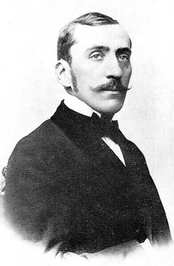
Ferenc Herczeg
Ferenc Herczeg (born Franz Herzog, 22 September 1863, Versec, Hungarian Kingdom - 24 February 1954, Budapest, Hungary) was a Hungarian playwright and author who promoted conservative nationalist opinion in his country. He founded and edited the magazine Új Idők ("New Times") in 1895, which remained for half a century the literary magazine of the conservative upper and middle classes of Hungary. In 1896 he was elected to parliament and in 1901 became the president of the Petőfi Society. In the early '50-s he was deported from Budapest to the Hungarian GULAG and released in 1953 - after Stalin's death, when the labor camps were liquideted. He died soon, in the next year.
If you like author Ferenc Herczeg here is the list of authors you may also like
Buy books on AmazonTotal similar authors (26)
-

Mór Jókai
Mór Jókai, born Móric Jókay de Ásva, outside Hungary also known as Maurus Jokai or Moriz Jokai, was a Hungarian dramatist and novelist. He was born in Komárom, the Kingdom of Hungary (today Komárno, Slovakia, southern part remains in Hungary).
Buy books on Amazon -

András Sütő
András Sütő was an ethnic Hungarian writer and politician in Romania, one of the leading Hungarian writers in the 20th century.
Buy books on Amazon
Sütő was born into a poor peasant family in Cămăraşu (Hungarian: Pusztakamarás), in Cluj County, Transylvania. He received his primary and secondary school education in the Reformed College of Aiud and in the Reformed gymnasium in Cluj. After secondary school, he studied Stage Directing at the Szentgyörgyi István College of Dramatic Arts in Cluj.
He quit college in order to become the editor in chief of the Falvak Népe weekly. He moved to Bucharest in 1951 because the editorial office was relocated there. Sütő could not identify himself with the political environment of the 1950s in the capital and returned to Transy -
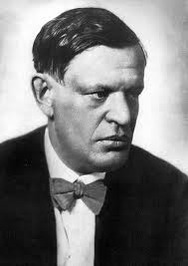
Frigyes Karinthy
Frigyes Karinthy (25 June 1887 in Budapest – 29 August 1938 in Siófok) was a Hungarian author, playwright, poet, journalist, and translator. He was the first proponent of the six degrees of separation concept, in his 1929 short story, Chains (Láncszemek). Karinthy remains one of the most popular Hungarian writers. He was the father of poet Gábor Karinthy and writer Ferenc Karinthy.
Buy books on Amazon
Among the English translations of Karinthy's works are two novellas that continue the adventures of Swift's character Gulliver. Voyage to Faremido is an early examination of artificial intelligence, while Capillaria is a polished and darkly humorous satire on the 'battle of the sexes'. -

Dezső Kosztolányi
Dezső Kosztolányi was a famous Hungarian poet and prose-writer.
Buy books on Amazon
Kosztolányi was born in Szabadka (Subotica) in 1885, then part of the Austro-Hungarian Empire, but which now lies in northern Serbia. The city serves as a model for the fictional town of Sárszeg, in which he set his novel Skylark as well as The Golden Kite. Kosztolányi studied at the University of Budapest, where he met the poets Mihály Babits and Gyula Juhász, and then for a short time in Vienna before quitting and becoming a journalist--a profession he stayed with for the rest of his life. In 1908, he replaces the poet Endre Ady, who had left for Paris, as a reporter for a Budapest daily. In 1910, his first volume of poems The Complaints of a Poor Little Child brought nationwi -

Kálmán Mikszáth
Kálmán Mikszáth Kiscsoltó was a major Hungarian novelist, journalist, and politician.
Buy books on Amazon
Mikszáth was born in Sklabiná into a family of the lesser nobility. He studied Law at the University of Budapest from 1866 to 1869, although he did not apply for any exam, and became involved in journalism, writing for many Hungarian newspapers including the Pesti Hírlap.
His early short stories were based on the lives of peasants and artisans, and had little appeal. However, they demonstrated his skill in crafting humorous anecdotes, which would be developed in his later, more popular works. Many of his novels contained social commentary and satire, and towards the end of his life they became increasingly critical of the aristocracy and the burden he believ -

Béla Bartók
Works, including the music for the opera Duke Bluebeard's Castle (1911) and Concerto for Orchestra (1943), of Hungarian pianist and composer Béla Bartók combine east European folk with dissonant harmonies.
Buy books on Amazon
Since 1920, small childhood hometown of Béla Viktor János Bartók in the kingdom within Austria constituted Sânnicolau Mare or great Saint Nicholas, Romania.
From his mother, he got his first lessons, but from the age of 18 years in 1899, he studied under a protege of the great late Franz Liszt. At the royal academy in Budapest, he met Zoltán Kodály, lifelong friend. Kodály, Claude Debussy of France, Johannes Brahms, and old Magyar melodies influenced Bartók, who met Richard Strauss in 1902. Indeed, Bartók of founded study of ethn -
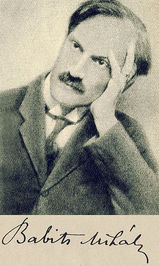
Mihály Babits
MIHÁLY BABITS was a Hungarian poet, writer and translator, member of the first generation of the literary journal Nyugat. He is best known for his lyric poetry, novels, essays and as the translator of Dante's Divine Comedy.
Buy books on Amazon -
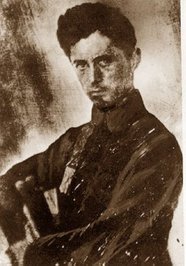
Sándor Petőfi
People best know Hungarian lyric poet and revolutionary hero Sándor Petöfi, originally Sándor Petrovics, for his patriotic songs and the epic poem Janos the Hero (1845).
Buy books on Amazon
This key national of Serb and Slovak descent figured in the Hungarian revolution of 1848.
Petőfi started his career as a poet with "popular situation songs," to which his first published poem, A borozó ("The Winery", 1842), belongs. This song of a drinker praises the healing power of wine to drive away all troubles. Despite this not unusual kind of pseudo-folk song in Hungarian poetry of the 1840s, Petőfi quickly developed an original and fresh voice, which made him stand. He wrote many poems like folk song on the subjects of wine, love, romantic robbers et cetera. The lo -
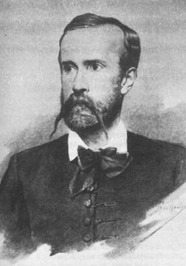
Imre Madách
Imre Madách de Sztregova et de Kelecsény was a Hungarian writer, poet, lawyer and politician. His major work is The Tragedy of Man (Az ember tragédiája, 1861). It is a dramatic poem approximately 4000 lines long, which elaborates on ideas comparable to Goethe's Faust. The author was encouraged and advised by János Arany, one of the most famous of 19th century Hungarian poets.
Buy books on Amazon
He was born in Alsósztregova, the Kingdom of Hungary (today Dolná Strehová, Slovakia) in 1823. The Madách family was able to trace their descent as far back as the 12th century; with a medieval knight, a Turk-beating hero and a Kuruc officer recorded down the line of the family tree. But a poet was also remembered; Gáspár Madách from the 17th century. And the ties of ki -
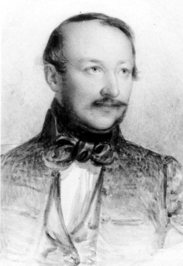
Mihály Vörösmarty
Mihály Vörösmarty was an important Hungarian poet and dramatist.
Buy books on Amazon
He was born at Puszta-Nyék (now Kápolnásnyék), of a noble Roman Catholic family. His father was a steward of the Nádasdys. Mihály was educated at Székesfehérvár by the Cistercians and at Pest by the Piarists. The death of the elder Vörösmarty in 1817 left his widow and numerous family extremely poor. As tutor to the Perczel family, however, Vörösmarty contrived to pay his own way and go through his academical course at Pest.
The activities of the diet of 1825 enkindled his patriotism and gave a new direction to his poetry. He had already begun a drama entitled Salomon. He flung himself ever more recklessly into public life until he fell in love with Etelka Perczel, who socially -

Thomas Mann
Librarian Note: There is more than one author in the GoodReads database with this name. See this thread for more information.
Buy books on Amazon
See also:
Serbian: Tomas Man
Thomas Mann was a German novelist, short story writer, social critic, philanthropist, essayist, and Nobel Prize laureate in 1929, known for his series of highly symbolic and ironic epic novels and novellas, noted for their insight into the psychology of the artist and the intellectual. His analysis and critique of the European and German soul used modernized German and Biblical stories, as well as the ideas of Goethe, Nietzsche, and Schopenhauer. His older brother was the radical writer Heinrich Mann, and three of his six children, Erika Mann, Klaus Mann and Golo Mann, also became important -

Leo Tolstoy
Lev Nikolayevich Tolstoy (Russian: Лев Николаевич Толстой; most appropriately used Liev Tolstoy; commonly Leo Tolstoy in Anglophone countries) was a Russian writer who primarily wrote novels and short stories. Later in life, he also wrote plays and essays. His two most famous works, the novels War and Peace and Anna Karenina, are acknowledged as two of the greatest novels of all time and a pinnacle of realist fiction. Many consider Tolstoy to have been one of the world's greatest novelists. Tolstoy is equally known for his complicated and paradoxical persona and for his extreme moralistic and ascetic views, which he adopted after a moral crisis and spiritual awakening in the 1870s, after which he also became noted as a moral thinker and soc
Buy books on Amazon -

Honoré de Balzac
French writer Honoré de Balzac (born Honoré Balzac), a founder of the realist school of fiction, portrayed the panorama of society in a body of works, known collectively as La comédie humaine .
Buy books on Amazon
Honoré de Balzac authored 19th-century novels and plays. After the fall of Napoléon in 1815, his magnum opus, a sequence of almost a hundred novels and plays, entitled, presents life in the years.
Due to keen observation of fine detail and unfiltered representation, European literature regards Balzac. He features renowned multifaceted, even complex, morally ambiguous, full lesser characters. Character well imbues inanimate objects; the city of Paris, a backdrop, takes on many qualities. He influenced many famous authors, including the novelists Mar -

Nikolai Gogol
People consider that Russian writer Nikolai Vasilievich Gogol (Николай Васильевич Гоголь) founded realism in Russian literature. His works include The Overcoat (1842) and Dead Souls (1842).
Buy books on Amazon
Ukrainian birth, heritage, and upbringing of Gogol influenced many of his written works among the most beloved in the tradition of Russian-language literature. Most critics see Gogol as the first Russian realist. His biting satire, comic realism, and descriptions of Russian provincials and petty bureaucrats influenced later Russian masters Leo Tolstoy, Ivan Turgenev, and especially Fyodor Dostoyevsky. Gogol wittily said many later Russian maxims.
Gogol first used the techniques of surrealism and the grotesque in his works The Nose , Viy , -

Kálmán Mikszáth
Kálmán Mikszáth Kiscsoltó was a major Hungarian novelist, journalist, and politician.
Buy books on Amazon
Mikszáth was born in Sklabiná into a family of the lesser nobility. He studied Law at the University of Budapest from 1866 to 1869, although he did not apply for any exam, and became involved in journalism, writing for many Hungarian newspapers including the Pesti Hírlap.
His early short stories were based on the lives of peasants and artisans, and had little appeal. However, they demonstrated his skill in crafting humorous anecdotes, which would be developed in his later, more popular works. Many of his novels contained social commentary and satire, and towards the end of his life they became increasingly critical of the aristocracy and the burden he believ -

Imre Madách
Imre Madách de Sztregova et de Kelecsény was a Hungarian writer, poet, lawyer and politician. His major work is The Tragedy of Man (Az ember tragédiája, 1861). It is a dramatic poem approximately 4000 lines long, which elaborates on ideas comparable to Goethe's Faust. The author was encouraged and advised by János Arany, one of the most famous of 19th century Hungarian poets.
Buy books on Amazon
He was born in Alsósztregova, the Kingdom of Hungary (today Dolná Strehová, Slovakia) in 1823. The Madách family was able to trace their descent as far back as the 12th century; with a medieval knight, a Turk-beating hero and a Kuruc officer recorded down the line of the family tree. But a poet was also remembered; Gáspár Madách from the 17th century. And the ties of ki -

Mór Jókai
Mór Jókai, born Móric Jókay de Ásva, outside Hungary also known as Maurus Jokai or Moriz Jokai, was a Hungarian dramatist and novelist. He was born in Komárom, the Kingdom of Hungary (today Komárno, Slovakia, southern part remains in Hungary).
Buy books on Amazon -

András Sütő
András Sütő was an ethnic Hungarian writer and politician in Romania, one of the leading Hungarian writers in the 20th century.
Buy books on Amazon
Sütő was born into a poor peasant family in Cămăraşu (Hungarian: Pusztakamarás), in Cluj County, Transylvania. He received his primary and secondary school education in the Reformed College of Aiud and in the Reformed gymnasium in Cluj. After secondary school, he studied Stage Directing at the Szentgyörgyi István College of Dramatic Arts in Cluj.
He quit college in order to become the editor in chief of the Falvak Népe weekly. He moved to Bucharest in 1951 because the editorial office was relocated there. Sütő could not identify himself with the political environment of the 1950s in the capital and returned to Transy -

Mihály Babits
MIHÁLY BABITS was a Hungarian poet, writer and translator, member of the first generation of the literary journal Nyugat. He is best known for his lyric poetry, novels, essays and as the translator of Dante's Divine Comedy.
Buy books on Amazon -

Dezső Kosztolányi
Dezső Kosztolányi was a famous Hungarian poet and prose-writer.
Buy books on Amazon
Kosztolányi was born in Szabadka (Subotica) in 1885, then part of the Austro-Hungarian Empire, but which now lies in northern Serbia. The city serves as a model for the fictional town of Sárszeg, in which he set his novel Skylark as well as The Golden Kite. Kosztolányi studied at the University of Budapest, where he met the poets Mihály Babits and Gyula Juhász, and then for a short time in Vienna before quitting and becoming a journalist--a profession he stayed with for the rest of his life. In 1908, he replaces the poet Endre Ady, who had left for Paris, as a reporter for a Budapest daily. In 1910, his first volume of poems The Complaints of a Poor Little Child brought nationwi -

Henrik Ibsen
Henrik Johan Ibsen was a major Norwegian playwright largely responsible for the rise of modern realistic drama. He is often referred to as the "father of modern drama." Ibsen is held to be the greatest of Norwegian authors and one of the most important playwrights of all time, celebrated as a national symbol by Norwegians.
Buy books on Amazon
His plays were considered scandalous to many of his era, when Victorian values of family life and propriety largely held sway in Europe and any challenge to them was considered immoral and outrageous. Ibsen's work examined the realities that lay behind many facades, possessing a revelatory nature that was disquieting to many contemporaries.
Ibsen largely founded the modern stage by introducing a critical eye and free inquir -

István Örkény
István Örkény was a Hungarian writer. A typical feature of his plays and novels is satiric view and creation of grotesque situations.
Buy books on Amazon
Born in Budapest, the son of a pharmacist, Örkény studied chemical engineering after leaving school and then turned to pharmacy, graduating from Budapest University in 1934. He travelled to London in 1938 and lived in Paris from casual work in 1939. In 1940, he continued his studies at Budapest Technical University, where he graduated in chemical engineering. He was sent to the front on labour service in 1942 and taken prisoner of war in 1943. On his return to Hungary in 1946, he worked as a drama editor for a theatre company. In 1954, he began working as an outside editor for the Szépirodalmi (Literary) publi -

Anton Chekhov
Dramas, such as The Seagull (1896, revised 1898), and including "A Dreary Story" (1889) of Russian writer Anton Pavlovich Chekhov, also Chekov, concern the inability of humans to communicate.
Buy books on Amazon
Born ( Антон Павлович Чехов ) in the small southern seaport of Taganrog, the son of a grocer. His grandfather, a serf, bought his own freedom and that of his three sons in 1841. He also taught to read. A cloth merchant fathered Yevgenia Morozova, his mother.
"When I think back on my childhood," Chekhov recalled, "it all seems quite gloomy to me." Tyranny of his father, religious fanaticism, and long nights in the store, open from five in the morning till midnight, shadowed his early years. He attended a school for Greek boys in Taganrog from 1867 -

Dante Alighieri
Dante Alighieri, or simply Dante (May 14/June 13 1265 – September 13/14, 1321), is one of the greatest poets in the Italian language; with the comic story-teller, Boccaccio, and the poet, Petrarch, he forms the classic trio of Italian authors. Dante Alighieri was born in the city-state Florence in 1265. He first saw the woman, or rather the child, who was to become the poetic love of his life when he was almost nine years old and she was some months younger. In fact, Beatrice married another man, Simone di' Bardi, and died when Dante was 25, so their relationship existed almost entirely in Dante's imagination, but she nonetheless plays an extremely important role in his poetry. Dante attributed all the heavenly virtues to her soul and imagi
Buy books on Amazon -

Magda Szabó
Magda Szabó was a Hungarian writer, arguably Hungary's foremost female novelist. She also wrote dramas, essays, studies, memories and poetry.
Buy books on Amazon
Born in Debrecen, Szabó graduated at the University of Debrecen as a teacher of Latin and of Hungarian. She started working as a teacher in a Calvinist all-girl school in Debrecen and Hódmezővásárhely. Between 1945 and 1949 she was working in the Ministry of Religion and Education. She married the writer and translator Tibor Szobotka in 1947.
She began her writing career as a poet, publishing her first book Bárány ("Lamb") in 1947, which was followed by Vissza az emberig ("Back to the Human") in 1949. In 1949 she was awarded the Baumgarten Prize, which was--for political reasons--withdrawn from -
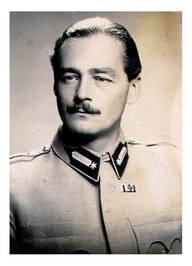
Albert Wass
Count Albert Wass de Szentegyed et Czege (Hungarian gróf szentegyedi és czegei Wass Albert) was a Hungarian nobleman, forest engineer, novelist and poet.
Buy books on Amazon
In 1944 he fled from Romania to Hungary, and then joined the fleeing Wehrmacht forces and ended up in Germany, then emigrated to the U.S. After World War II, he was condemned as a war criminal by the Romanian People's Tribunals, however, United States authorities refused to extradite Wass to Romania claiming the lack of solid evidence.
The works of Albert Wass first gained recognition within Hungarian literature from Transylvania in the 1940s. In 1944 he moved to Germany and later in 1952 to the United States, and lived there till his death. During the communist regime his books were banned